MercoPress. South Atlantic News Agency
Tag: Humanitarian crisis
-
Friday, February 8th 2019 - 08:43 UTC
Humanitarian aid arrives to Cucuta, a bridge away from Venezuela

Trucks carrying humanitarian aid for crisis-stricken Venezuela arrived in the Colombian border city of Cucuta on Thursday as diplomatically-isolated President Nicolas Maduro appeared set to block its entry amid an escalating political crisis.
-
Thursday, February 7th 2019 - 10:11 UTC
Guaido insists with humanitarian aid for Venezuela, but the Army blocks access
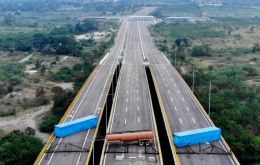
Venezuela’s opposition leader Juan Guaido stepped up efforts on Wednesday to win recognition from EU holdout states and insisted the armed forces allow desperately needed humanitarian aid to enter the country.
-
Wednesday, February 6th 2019 - 08:58 UTC
US humanitarian aid stationed at the Colombia/Venezuela border
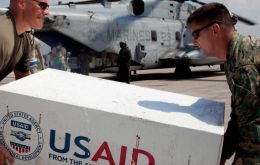
Trucks carrying food and medical supplies sent by the United States to be stockpiled until it can be brought into Venezuela will arrive later this week at Guaido’s request and will be prepositioned at the main Colombian-Venezuelan border crossing at Cucuta, U.S. sources revealed
-
Thursday, January 31st 2019 - 09:40 UTC
Humanitarian aid to Venezuela caught in a divided UN Security Council
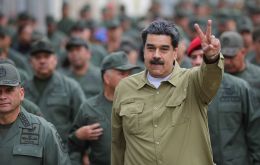
Three days after proclaiming himself Venezuela’s head of state, Juan Guaidó wrote to the United Nations Secretary-General Antonio Guterres asking for help in tackling the country’s urgent humanitarian crisis.
-
Tuesday, January 29th 2019 - 09:03 UTC
Venezuela approves a new, privately run, foreign exchange system; dollar sells at 3.200 Bolivars, 34% dearer
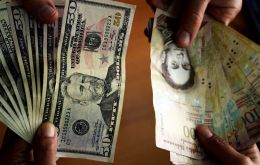
Venezuelan authorities on Monday approved a new, privately run foreign exchange system that will operate in parallel to the official currency control system, as an emboldened opposition challenges President de facto Nicolás Maduro.
-
Wednesday, December 19th 2018 - 14:30 UTC
Macri urges Mercosur to take action against “Venezuelan dictatorship”
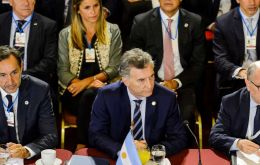
Argentine President Mauricio Macri Tuesday launched an appeal in Montevideo to find solutions to the humanitarian crisis in Venezuela and called for the “return of democracy” in that country. He delivered that speech during the Mercosur summit where he is to take up the bloc's rotating presidency from host Tabaré Vázquez.
-
Saturday, December 15th 2018 - 09:20 UTC
Investigation into the death of Guatemalan child in the custody of US Border Patrol
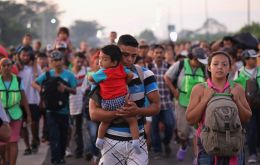
An investigation has been launched after a seven-year-old girl died while in the custody of the US Border Patrol. The Guatemalan child, named as Jakelin Caal Maquin, was detained last week after crossing the US-Mexico border with her father, officials say.
-
Wednesday, September 26th 2018 - 09:08 UTC
“Thank you Donald Trump, for surrounding me with dignity” replies Maduro next to US sanctioned officials

Venezuelan president Nicolas Maduro replied to Donald Trump's UN speech saying his comments were an apology for America’s history of colonialism in the region and offered words of support for the sanctioned officials who joined him during an event broadcast over state television.
-
Tuesday, September 11th 2018 - 14:57 UTC
Hunger increases and affects 39 million people in Latin America
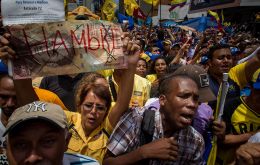
Hunger reached 821 million people in 2017 worldwide, of which about 39 million are Latin American, according to the UN Food and Agriculture Organization (FAO). The figure represents a deterioration of 6.1% in Latin America and the Caribbean compared to previous years and could be due to the economic slowdown in South America, especially marked by the case of Venezuela, the UN agency said on Tuesday.
-
Friday, September 7th 2018 - 09:22 UTC
Latin American countries will receive Venezuelan migrants even with expired documents

Eleven Latin American countries say that they have agreed to allow Venezuelans leaving their homeland to enter their countries even if their travel documents have expired. More than 2.3 million Venezuelans have fled the country's hyperinflation and severe shortages, but many do not have valid passports because renewing them can take years.
